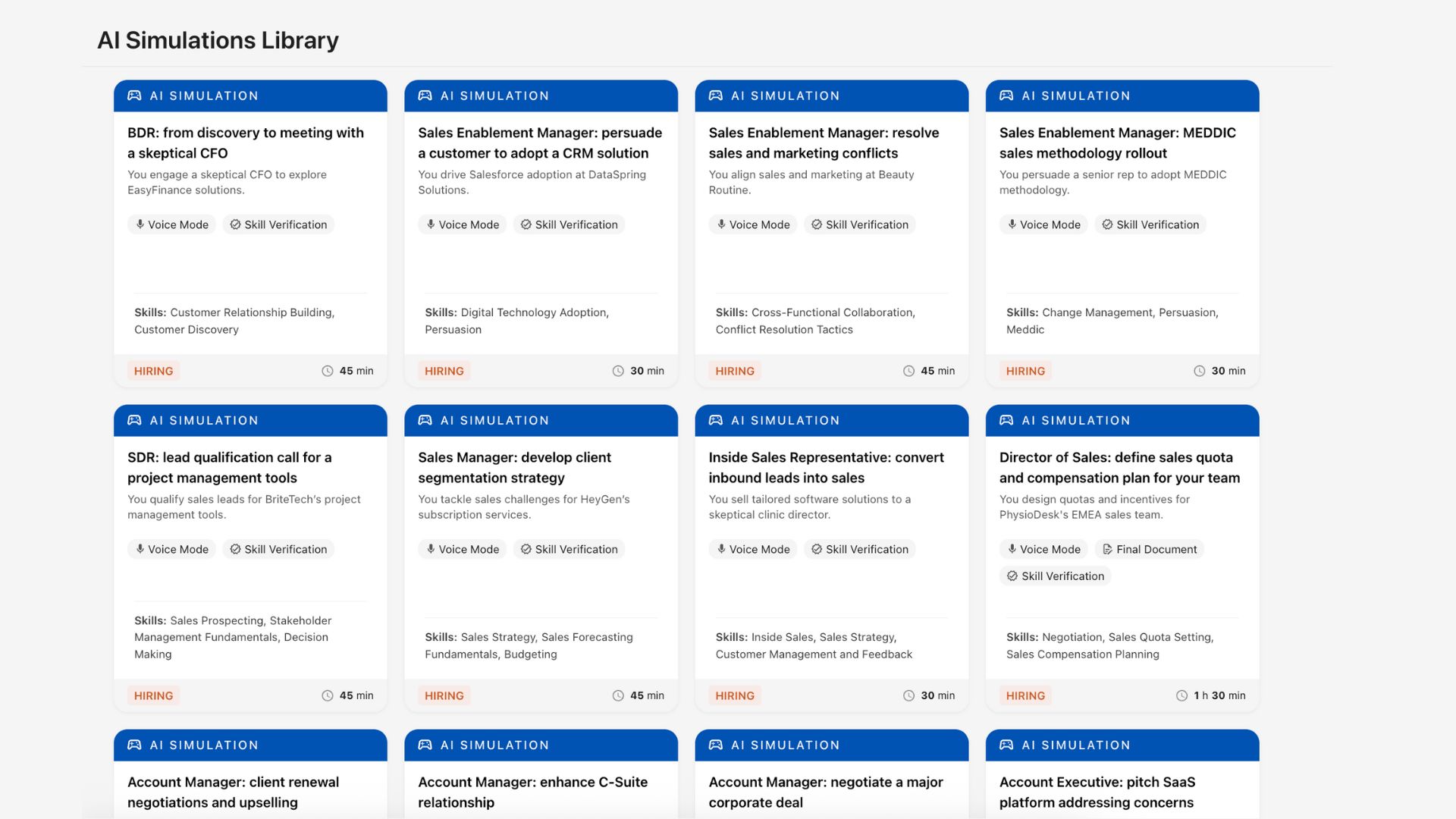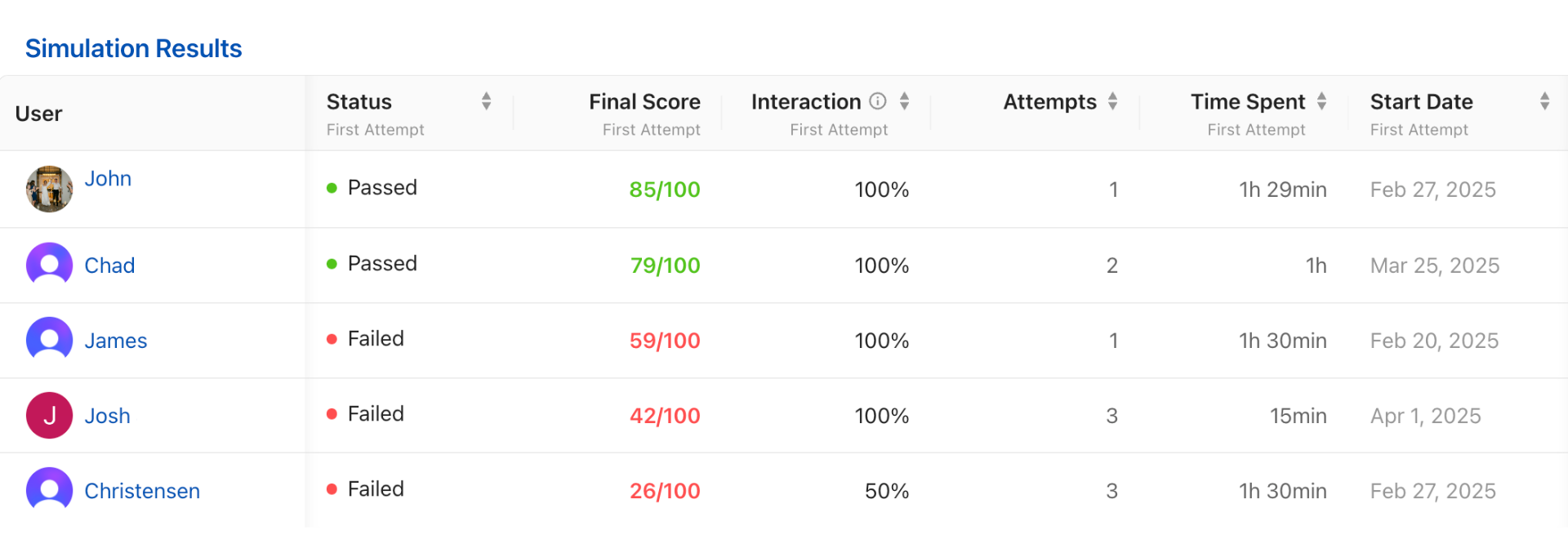There was a time when a resume told you something useful. Experience, track record, certifications — it wasn’t everything, but it was at least a signal. That time is over.
Today, sales resumes are increasingly engineered by AI. With just a browser extension and a job post, a candidate can instantly generate a polished, keyword-stuffed CV that ticks every box your role requires. Years of experience? Covered. CRM skills? Listed. Product knowledge, negotiation, storytelling? All there, perfectly formatted and ready to impress. And yet, none of it may be real.
For hiring teams, especially in sales, this shift has turned a difficult job into something bordering on impossible. When every CV looks like a fit, none of them truly are. What you’re reading isn’t who the person is — it’s what they think you want to see. And when AI tools do the writing for them, even that filter disappears.
The result? Talent acquisition teams spend hours sifting through beautifully written documents, only to realize that the signal-to-noise ratio has collapsed. And in sales, where execution is everything, hiring based on presentation instead of performance is a dangerous game.
The Problem Goes Beyond the Resume
It’s not just the CV. Classic hiring tools — including online quizzes and multiple-choice assessments — are equally vulnerable. The same extensions that rewrite resumes can also help candidates cheat tests, anticipate keywords, and generate plausible-sounding answers to generic prompts.
For roles where communication, critical thinking, and persuasion are core to success — like sales — these methods fall apart. You don’t just want to know if someone can pick the right answer from a list. You need to know if they can handle a tough conversation with a prospect, write a persuasive proposal, or respond to pressure when the deal is on the line.
No quiz will show you that. Neither will a templated skills test or a well-rehearsed interview. And that’s why a growing number of hiring managers are stepping away from resume-based screening and moving toward simulation-based assessment.
The Smarter Way Forward: Real-Life Sales Simulations
What replaces the resume? Reality.
Instead of trying to interpret resumes or test scores, you can evaluate candidates in real-world job simulations. This means placing them in a sales situation that mirrors your business — a cold call, a product pitch, a client objection, a team handoff — and watching how they respond.
At Anthropos, we’ve built a platform that allows you to do exactly that. In 30 to 60 minutes, a candidate can go through a series of AI-powered simulations that replicate the key parts of your sales process. They’ll speak to simulated prospects, write follow-up emails, build proposals, and navigate internal communication between sales and other teams.
And what you get isn’t just a general score — it’s a performance profile. You see how they speak, how they structure conversations, how they respond when a prospect pushes back. You observe their tone, their logic, their ability to build rapport. You can tell if they’re strategic or reactive, if they prepare well, if they know how to manage a process rather than just show up to a meeting.
These are the things that make or break a sales rep. And they’re exactly what resumes — AI-crafted or not — can’t show you.

Speed, Scale, and Objectivity
One of the biggest myths about simulations is that they’re slow or hard to scale. That might have been true in the past. But with Anthropos, simulations are fully automated and customizable, allowing you to screen dozens or even hundreds of candidates at once — without adding manual effort.
You can send the simulation link as part of your initial application process or after an initial screen. Candidates complete the exercise on their own time, in a natural digital environment that mirrors what they’ll actually be doing on the job. No technical setup. No prep. Just the work, done in a way that feels authentic.
For your team, it’s a game changer. You move from opinion to observation. From “this person had a good interview” to “this person actually knows how to sell.” And because the output is structured and standardized, you can compare candidates based on how they behave — not how they brand themselves.
This doesn’t just reduce hiring errors. It also cuts down time-to-hire, improves offer acceptance (because candidates feel seen and respected), and brings sales managers into the process earlier with richer, more useful data.
You’re Not Just Evaluating Talent — You’re Protecting Revenue
Hiring a sales rep isn’t just a recruitment decision. It’s a revenue decision.
A bad hire doesn’t just affect team morale or create short-term disruption. It hurts your forecast. It slows down pipeline coverage. It eats into management time, costs you qualified leads, and delays everything from onboarding to market growth. In high-velocity environments, these aren’t soft costs — they’re losses you can measure in missed quotas and delayed results.
With simulation-based hiring, you’re no longer hiring someone because they seem right. You’re hiring them because they’ve shown you what they can do — in situations that closely mirror your reality. You’ve watched how they respond to your ICP, how they position your product, how they navigate internal blockers or deal fatigue. You’re not just checking boxes. You’re hiring readiness.
That’s what makes this approach so powerful. It’s not just smarter — it’s safer. It allows you to hire salespeople who can actually do the job you’re hiring them to do.

The Bottom Line
In a world where resumes are generated by AI and candidates know how to game traditional assessments, relying on outdated hiring methods is no longer viable — especially in sales.
If you want to hire people who can represent your product, close deals, and drive revenue, you need to see them in action before they’re on payroll.
Simulations make that possible. They give you the context, clarity, and confidence that the resume never could. And they do it at scale, without slowing down your process.
If you’re ready to move beyond the CV, we’d love to show you how.
It may also interest you
A blog to rethink work and career
This blog wants to help you understanding how to improve your career, acquire new skills, move to new industries and in general, how to deal with your job and think about it in your career context.
You can also find all the updates and news features of Anthropos.
If you feel this is helpful, sign-up for our newsletter, Square One.